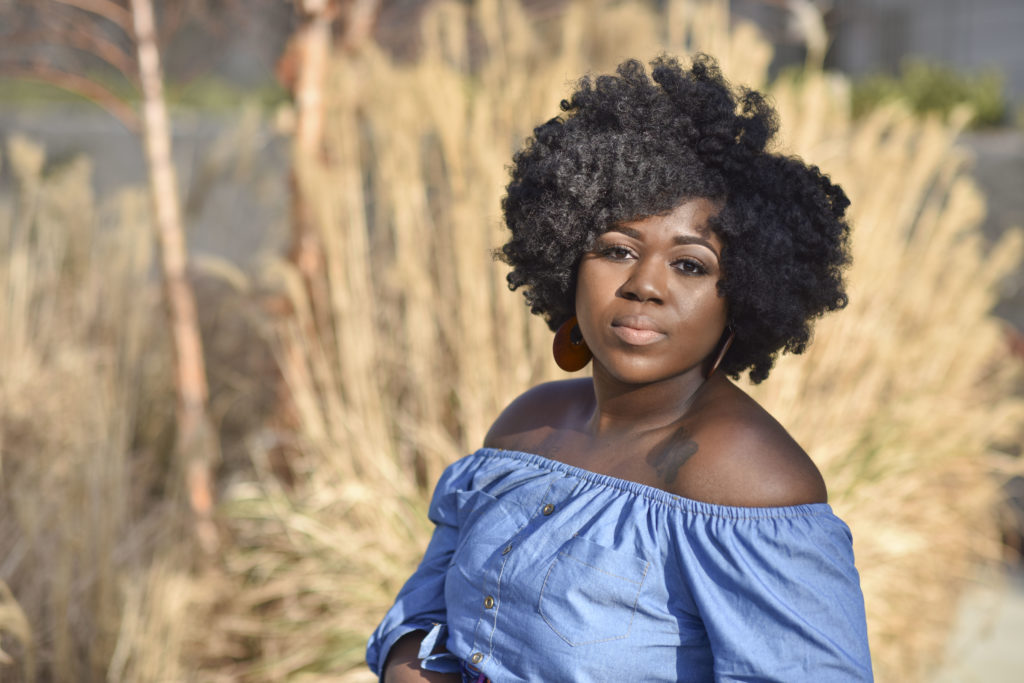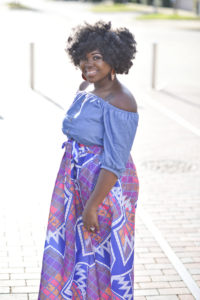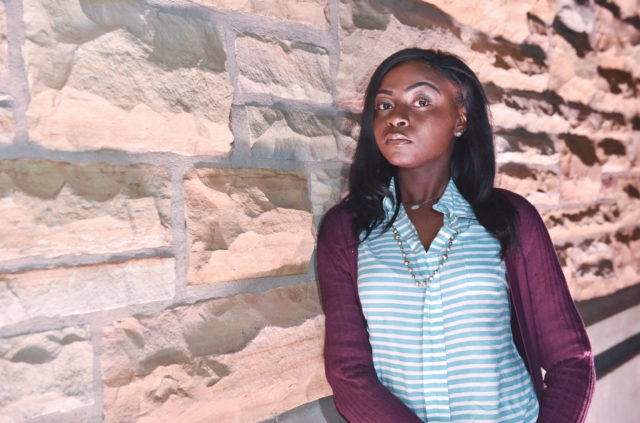By Je’Don Holloway Talley
For the Birmingham Times
Surviving Sexual Abuse
Gone are the days of silence and shame in the face of sexual assault and misconduct. America is slowly adapting to a new narrative for survivors of sexual abuse—one that empowers, vocalizes, and offers cathartic relief.
With there being strength in numbers and solace in solidarity, the country has taken a stance in support of the growing movement to lift the veil of secrecy and denial surrounding sexual abuse and sexual predators. #TimesUp, say African-American artists, such as actresses Kerry Washington and Viola Davis, film director Ava Duvernay, and mogul Oprah Winfrey. #MeToo, says activist Tarana Burke.
As silence now equates complicity, silence further cultivates a society ignorant of how sexual assault is so deeply woven into the fabric of America and the lives of women and children. In the wake of “Surviving R. Kelly”—a six-hour television documentary that aired on Lifetime earlier this month, revealing the accounts of several women who have accused the R&B singer of abuse, including keeping them secluded in a house and controlling them with fear and intimidation—women across the country and here in Birmingham have expressed how some of the victim’s stories brought back painful memories of their own traumatic pasts.
The impact is undeniable.
Social conversations continue to expose the need for social change to challenge the norms of yesteryear regarding child molestation, sexual assault, predatory behavior, and statutory rape. The Birmingham Times recently spoke with a group of survivors who have endured the trauma of sexual abuse and courageously stepped forward to share their stories as they navigate the road to recovery.
This is the first of two parts. The second part, to be published online Wednesday, Feb. 6 and in print on Thursday, Feb. 7, will feature interviews with counselors and therapists about the impact of sexual abuse and assault on the individual and society.

After moving in with an aunt while her mother had a year-long stay in a psychiatric ward recovering from a mental breakdown, Lashaundria Brown and her brother were allowed to play and watch TV in only one room in the house.
“I thought we were just going to play like normal cousins do,” Brown said.
But then “it” happened. She was 5 at the time.
“I’m guessing [my cousin] was curious … and would have urges he wasn’t even able to understand because the initial abuse started when he was 11 or 12; … he’s six years older than me,” Brown recalled. “He would make me watch TV in the bed with him underneath the covers, … [and] he would proceed to fondle me along with the other things he would try to do. I don’t even think I understood what was going on.
“I would make my brother take notice of the activity, … never verbally, just some gesture so [my cousin] would turn around and look. Every time my brother started to take notice, [my cousin] would cease to continue any noticeable actions and movements.”
The Bessemer native said the assaults would go on for a year. This was around 1996. Brown and her brother were only away from their mother for a year as she worked toward recovery, but that was enough time for her cousin to inflict damage.
“I did not tell anyone the abuse happened in fear of no one believing me or it causing issues within my family,” Brown said. “I felt abandoned and neglected, and I didn’t understand what I had done to deserve [the abuse]. The abandonment I felt never really allowed me to build the normal confidence and self-esteem that a normal child would have developed in a protective environment.”
“Never-Ceasing Thoughts”
Brown said she got involved with several extracurricular activities to keep her mind off what she was going through.
“I would involve myself in so many extracurricular activities to have something else to focus that energy on,” she said. “I was a cheerleader. I was in the choir. I was in all the math clubs. I was in the band. I used to work on songs: music was my go-to; … it could describe every emotion I was feeling.”
As an adult, Brown’s anxiety feels like flipping through channels, she said.
“I can never focus on that one movie or show before I’m flipping to the next channel and the next channel. There are just never-ceasing thoughts.”
Her relationships would also suffer.
“I was never really able to have a successful relationship until I was in a better place about what I went through in all aspects,” Brown said. “I had trust issues. I was argumentative because of the anxiety I developed in response to what I went through. I was overly defensive because I had no one there to protect me when I went through the molestation.”
When it comes to parenting, Brown said, “It’s hard for me to trust my [5-year-old daughter] around outside people, especially men.”
Journey to Healing
The Birmingham resident began her journey to healing in 2015. Her daughter was an infant, and Brown realized that she needed to take some steps to be the mother her child deserves. It started with a phone call to her abuser. Brown felt like an overdue conversation with him was standing in the way of her healing.
“He showed remorse,” she said. “To know that he was going through some of the same things I was going through regarding [the molestation] and wasn’t just living life like nothing was wrong while I’m going all through these things to heal [helped]. He told me he’s gone to counseling, … but he’s carried the guilt and has not taken certain jobs in the ministry because of [that guilt].”
Brown had reached a point in her life where she couldn’t stop the bouts of anxiety and their effects.
“After that realization, I sought counseling,” she said. “I felt like, ‘I can’t get over this. It’s affecting me in all aspects and all areas of my life. So, let’s try [therapy].’ When I realized that what happened to me wasn’t my fault, but it was my responsibility to get over, I wanted to fully heal myself.”
No Longer Captive
Transparency was what the doctor ordered.
“When I became transparent about my situation in its entirety, I was able to begin to release all the negative emotions associated with it,” Brown said. “I made my mom promise she wouldn’t hate anybody if I revealed it to her. My mother has always supported me in whatever I felt was most beneficial to me and my healing.”
Brown, mother to 5-year-old daughter Talia, wants to become a sexual-abuse-prevention activist.
“I wouldn’t want anyone to feel like they are suffering by themselves,” she said. “I want people to understand the measures they can take, and that people are in the position to help them.”
For Brown, forgiveness and activism have been a part of the healing process. The trauma from her abuse “can no longer hold me captive mentally,” she said.
“I consider myself to be on the verge of a new me fully healed from this. … I feel like the more people I can help, the more purpose my experiences have.”
Asked if she considers herself a survivor, Brown said, “Yes, because I have taken my power back over my pain. Being a survivor means I possess the power to overcome anything.”
Surviving Sexual Abuse: Aiechia House, moving forward

By Je’Don Holloway Talley
For the Birmingham Times
Aiechia House was first molested by a 17-year-old cousin when she was 8 years old; the abuse lasted until she was 10. House

remembers being “groomed” by her abuser.
“He would take me to places like the movies and restaurants,” she said. “He was a cousin, so when we were around each other he was really attentive to me. … It started with ‘play fighting,’ which he would use as an opportunity to grope me.”
He eventually began going under her clothes and “digitally penetrating” her, House said. This awakened sexual responses in her that she did not know how to process.
“This is an aspect of child molestation that not enough people talk about,” she said. “Initially, I wasn’t scared or hurt. My body was reactive, so it was conflicting because sometimes my body would react when it felt good—until it didn’t.”
The Brighton native, 30, who now lives in Atlanta, Ga., said the abuse would often take place in spaces she was supposed to feel the safest: home, grandma’s house, her aunt’s homes, one of which belonged to the predator’s mother.
House went through a range of emotions: “I didn’t feel entrapped in the moment; it was more so after the abuse. I felt like I couldn’t speak up about it. I felt angry, hurt, and ashamed. I felt entrapped in my own mind when I would be around him and other family members because I always wanted to say something but just couldn’t.
“I honestly didn’t know what to say. I kept hoping someone would ask me. I remember thinking to myself, ‘Ask me. Please, somebody ask me!’”
Turning Point
One specific incident sticks out for House.
“We were all at my aunt’s house, [not his mother’s], over Labor Day weekend for a family event.”
She recalled lying down in the living room on the sofa, resting from a headache, when her abuser, at the time a 19-year-old college student, was getting ready to return to campus with their uncle.
“When he told my uncle, ‘Give me a second. Let me go use the bathroom,’ that raised a red flag with me because he had literally just come out of the bathroom. … He came up to me, said he was about to go back to school, and told me to get up and give him a hug. So, I did. When I went to lay back down, he grabbed me from behind. That’s when we started fighting. … He put his hand over my mouth and started to try and drag me out the living room into a bedroom,” said House, who was 10 at the time.
“We started wrestling right there in the living room. I remember I screamed out three separate times, and I was thinking someone was going to hear me and walk in on the situation, but nobody ever came inside. … He was never able to get me out of the living room. I elbowed him and was able to get away and ran to the [back] door. As I looked back at him before I went outside, he hollered, ‘Bitch’ before he walked out the front door.
“When I ran outside, I was huffing and puffing because I had just been fighting. I remember that my grandmother, my aunt, [not his mother], and my aunt’s daughter were all standing on the stairs right [outside] the door. They looked at me and my granny said, ‘What’s wrong with you, girl?’ I was barely able to speak, but I said his name and [told them] he tried to drag me in the back room.”
House said her grandmother led the three of them to the front of the house, where the other family members were gathered, and repeated what happened. House’s cousin called her a crazy liar, saying “I put it on a stack of Bibles: she’s lying, she’s crazy.”
“Basically, everyone dropped it after that,” said House, who considered that a turning point, the time she found her voice.
Family Dysfunction
House was surprised to see family members still leave their children with the cousin who had abused her.
“No one was ever going to stop it,” she said. “He was still coming around, sitting at the dinner table like nothing was wrong.”
Family gatherings became difficult for her.
“I absolutely hated family functions with a passion,” she said. “It was the most awkward situation because he would treat me like I had done something to him. He was really angry toward me. It was really uncomfortable. I’m such an outgoing and talkative person, and it was really disappointing for me that my family didn’t notice that I became a shell of myself whenever he was around.”
“He Did Molest Me”
A decade later her cousin was caught attempting to molest a coworker’s daughter.
“By this time, I was finishing college. I was 22,” House said. “After my mom finished with the story, she said, ‘Whew, I’m so glad that didn’t happen to you. We stopped it.’ I started crying. I couldn’t hold it back any longer. I said, ‘Mom, yes, it did [happen to me]. He did molest me. It happened multiple times.’
“She was like, ‘No, no, you’re good.’ I was like, ‘No, that last time was just the final straw.’
“My mother, God rest her soul, I love her, but she knew something was wrong between [my cousin and me]. She just didn’t realize it was to that extent, [that he was molesting me], but she would force me to be around him [by making me go to family events].”
Once House learned that her cousin had been arrested, she contacted the detective working the case.
“I told him my story and who I was to him,” she said. “I felt relieved that I had finally lifted the burden of shame and secrecy off my shoulders and onto his.”
The Stillman College grad said that family members, including her mother, did not want her to testify.
“[Family] told me that I was wrong [for going to the authorities], that I was lying, and that he doesn’t deserve to be in jail; he just needs help” House said. “After the trial was over, [the detectives] told me that [my story and that of the coworker’s mother] had ‘uncanny resemblances.’”
“Moving Forward”
House is still trying to recover. Certain touches during intimacy can trigger flashbacks and some current news and pop-culture happenings trigger post-traumatic stress disorder (PTSD).
“Like with the Bill Cosby and R. Kelly cases, the women being told they are liars,” she said. “It’s very triggering to me because I am a woman who has been told she was lying.”
Today, House said her years of sexual abuse have made her stronger and more sensitive to others, especially assault victims.
“I went to therapy, which was good for me,” she said. “But the best thing I ever did was testify in court, tell my story, and no longer stay silent about [being abused].”
Therapy also helped House deal with repressed anger issues: “Sometimes I was angry with my mom because I felt like she didn’t protect me.”
Asked if she considers herself healed from her past, House, who is a hospitality manager and has been married for three years, said she’s healed and “still growing.” She classifies herself more as a “thriver” than a survivor.
“Regardless of my circumstances and situation, I’m still moving forward,” House said. “I have taken my power back. … I will never allow another person to have that type of power over me again.”
To read how sexual abuse survivor Angel Warren is breaking the silence, click here.
To read about Marie A. Sutton’s column on sexual abuse, click here.





